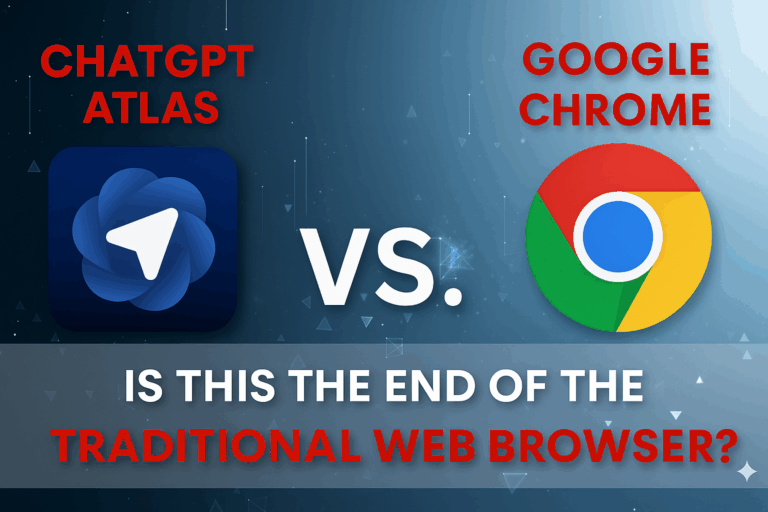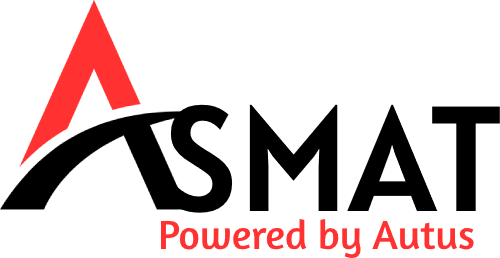
In an era where technology is advancing faster than ever, the distinction between search engines, browsers and AI assistants is getting harder to draw. The latest example of this trend is ChatGPT Atlas: OpenAI’s new “interface” that promises to change the way we discover information on the internet. For more than two decades, Google Chrome has helped shape the internet itself and if you’re like most people, it’s still what you use every time you open up a web browser. But with the arrival of Atlas, many are wondering: could this be the beginning of the end for the traditional web browser?
Let’s unpack what makes ChatGPT Atlas different from Chrome, how it shifts our browsing paradigm and implications for the future of digital experiences.
What Is ChatGPT Atlas?
ChatGPT Atlas isn’t just a new version of ChatGPT it’s an entirely new way to discover and interact with the internet. Instead of entering a query into a search bar, and slogging through dozens (or hundreds) of links that may or may not help you with what you need, the AI-driven browser summarizes, analyzes and presents relevant information to you directly.
Think of it as combining the intelligence of ChatGPT with the capabilities of a browser. You can ask questions, open pages, summarize articles or even do research without changing tabs. The objective is straightforward: to facilitate seamless, personalized and conversational browsing.
How Google Chrome Shaped the Modern Internet
Before Atlas, Chrome set the standard for speed, security, and simplicity. Launched in 2008, Chrome quickly became the most popular browser thanks to its clean interface and integration with Google’s ecosystem – Gmail, Drive, YouTube, and Search.
Chrome has evolved over time to be more than a browser; it’s become the window to the web. That added synchronization across devices, extensions, and robust developer tools which have come to characterize modern web development. However, Chrome also brought along issues high memory consumption, privacy concerns, and an increasingly ad-driven experience.
Chrome reigned supreme unchallenged for so many years. But now, with the sudden ascension of AI, a new player has taken the stage.
How ChatGPT Atlas Differs from Chrome.
While Chrome provides access to the web, Atlas interprets the web for you. This marks a significant shift in user experience.
| Feature | Google Chrome | ChatGPT Atlas |
|---|---|---|
| Primary Function | Traditional browser for viewing websites | AI-driven interface for understanding information |
| User Input | Manual search and navigation | Conversational prompts and commands |
| Result Format | List of links and pages | Summarized answers and actionable insights |
| Extensions | Web Store-based | AI plug-ins and real-time integrations |
| Focus | Browsing and exploration | Contextual understanding and productivity |
This table highlights the philosophical difference: Chrome is about exploring the internet, while Atlas is about extracting knowledge from it.
The Rise of AI-Powered Browsing
AI browsing tools like ChatGPT Atlas represent a broader trend: users no longer want to sift through endless search results. Instead, they want fast, accurate answers in natural language.
Atlas leverages OpenAI’s web integration, real-time updates, and contextual understanding to provide richer interactions. For example, you could ask:
“Compare the latest marketing trends for 2025 and summarize them for a startup presentation.”
Instead of showing a list of articles, Atlas scans the web, compiles the data, and presents a clean summary with citations. This changes not only how users consume information but also how content creators, marketers, and educators reach their audiences.
What This Means for Google Chrome and Traditional Browsers
Google Chrome, Microsoft Edge, and Safari were built around the idea of linking humans to web pages. But AI browsers are being developed to connect humans directly with knowledge. This division could shape the future of the entire digital ecology.
Here are a few potential impacts:
- Reduced Dependence on Search Engines: If people no longer have to Google questions, search can suffer a huge drop in traffic.
- Shift in SEO Strategy: Optimizing content for AI understanding, not just search ranking.
- Privacy Improvements: AI-driven browsing could limit data tracking since it doesn’t rely on ad networks the same way traditional browsers do.
- Changes in Web Design: Web pages may have to give preference to structured info understandable by AIs (schema, data markup and the like) for continued visibility of a website under AI-based queries.
For marketers, this signals a major shift — one that’s already being addressed in advanced training programs such as the Digital marketing course in Tilak Nagar, which teaches students how to adapt to evolving technologies like AI-driven search and content discovery.
Will ChatGPT Atlas Replace Google Chrome?
While it’s tempting to call Atlas a “Chrome killer,” the truth is more nuanced. Atlas isn’t looking to replace traditional browsers overnight; it’s trying to reimagine the browsing experience entirely.
Chrome will likely continue serving users who prefer manual navigation, video streaming, and web app interaction. Meanwhile, Atlas appeals to professionals, researchers, and learners who value efficiency and contextual understanding. Over time, as AI browsing becomes more mainstream, we might see hybrid browsers – combining Chrome’s web ecosystem with Atlas’s AI interface.
The Future of Browsing: Conversational and Contextual
Imagine a world where your browser becomes a personal assistant — one that not only finds web pages but also writes reports, creates designs, or summarizes market data in seconds. That’s the vision behind ChatGPT Atlas.
This shift is representative of the way AI has been transforming every industry — education, health care, marketing and design — in recent years. Because businesses are starting to use AI tools, people need to be ahead of the curve and know how to properly use these things.
Conclusion: A New Era of Intelligent Browsing
ChatGPT Atlas marks the beginning of a new era — one where AI doesn’t just assist your browsing but becomes the browsing experience. While Google Chrome laid the foundation for speed and accessibility, Atlas is redefining what it means to interact with the internet.
Instead of clicking and searching, we’ll soon be conversing and discovering. Traditional browsers won’t disappear overnight, but they will have to evolve if they want to remain relevant in a world of intelligence, personalization and context.
Whether you’re a marketer, student or tech enthusiast, the evolution of AI browsers is a reminder that the future of the web isn’t just about where we go online it’s how we get there.
Final Thoughts:
The web is changing, and we need to change with it. Tools like ChatGPT Atlas prove that AI is not just an add-on to the internet — it’s the next stage of its evolution. Embracing this change, learning how to adapt, and understanding AI-driven browsing will define the digital leaders of tomorrow.
